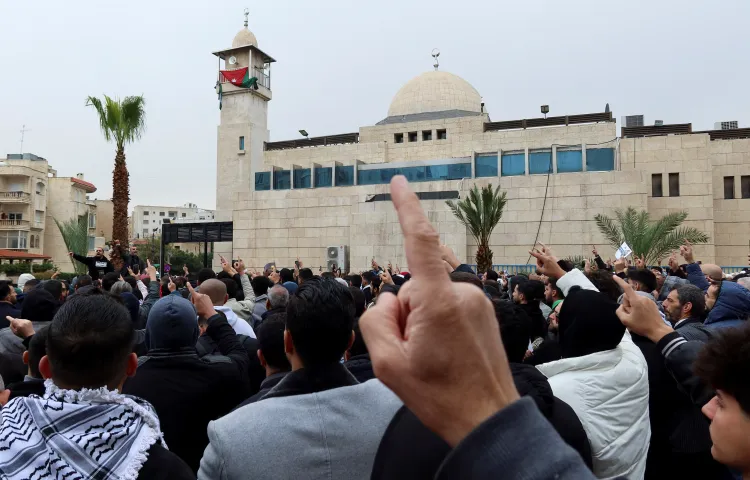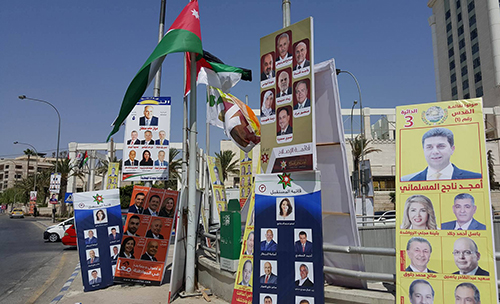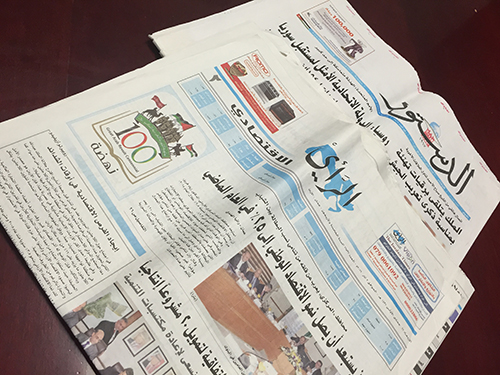
CPJ calls on Jordan to free photojournalist Ahmad Mohsen
Beirut, April 10, 2024—The Committee to Protect Journalists calls on Jordanian authorities to immediately and unconditionally release freelance photojournalist Ahmad Mohsen, professionally known as Sherbel Dissi, from administrative detention and ensure journalists are allowed to freely cover events of public interest. On March 30, security forces arrested Mohsen alongside dozens of protesters while he was…

Changes to Jordan’s hate speech law could further stifle press freedom
Recently proposed amendments to Jordan’s 2015 cybercrime law, including a vague and broad definition of hate speech, will further stifle press freedom on the pretext of protecting the country’s citizens, and could result in further self-censorship, several Jordanian journalists told CPJ.

Mission Journal: Gag orders make Jordan’s journalists skeptical of reform
Sitting uncomfortably in her chair because of a soccer injury, the Jordanian radio host Diala Dabbas said, “I know we are banned from talking about the king, his family, and the divine, but now I am also afraid to talk about anyone else who could be considered a ‘religious symbol’.”

Mission Journal: Rise in journalist arrests tarnishes Jordan’s image as reformist
The phone call came just as our conversation about the escalating crackdown on Jordanian media hit its stride. Lina Ejeilat, the co-founder of the news website 7iber (pronounced hebber), apologized and said she had to take the call. It was 7iber’s lawyer and it was important. For years the website had fought against a requirement…

Treating the Internet as the enemy in the Middle East
The snow and freezing temperatures that struck Saudi Arabia unexpectedly in December 2013 were newsworthy in a desert kingdom better known for its extreme heat. But the fact that the ensuing power outages at a regional prison left prisoners without power or heat for nearly a week was apparently off-limits to reporters.
Jordan’s free press record dims with website restrictions
Jordan’s press freedom climate, once a shining light in the Middle East, has quickly deteriorated as journalists grapple with last year’s government ban on nearly 300 news websites. Press freedom groups are documenting a rise in self-censorship and an increase in criminal cases against journalists. Local online news editors and journalists are complaining of economic…